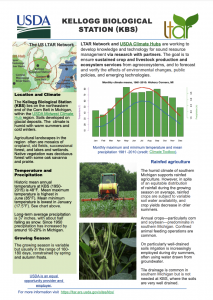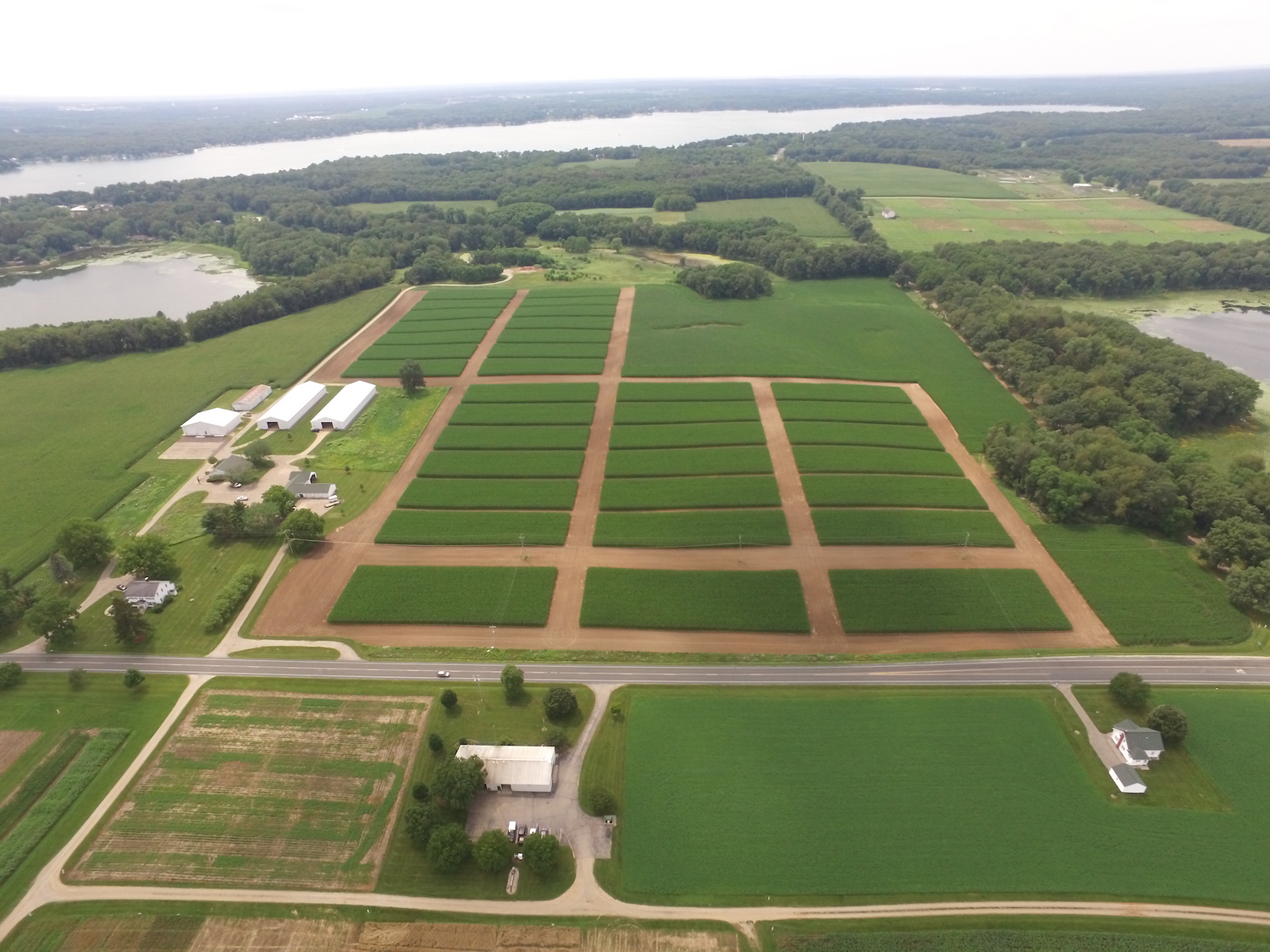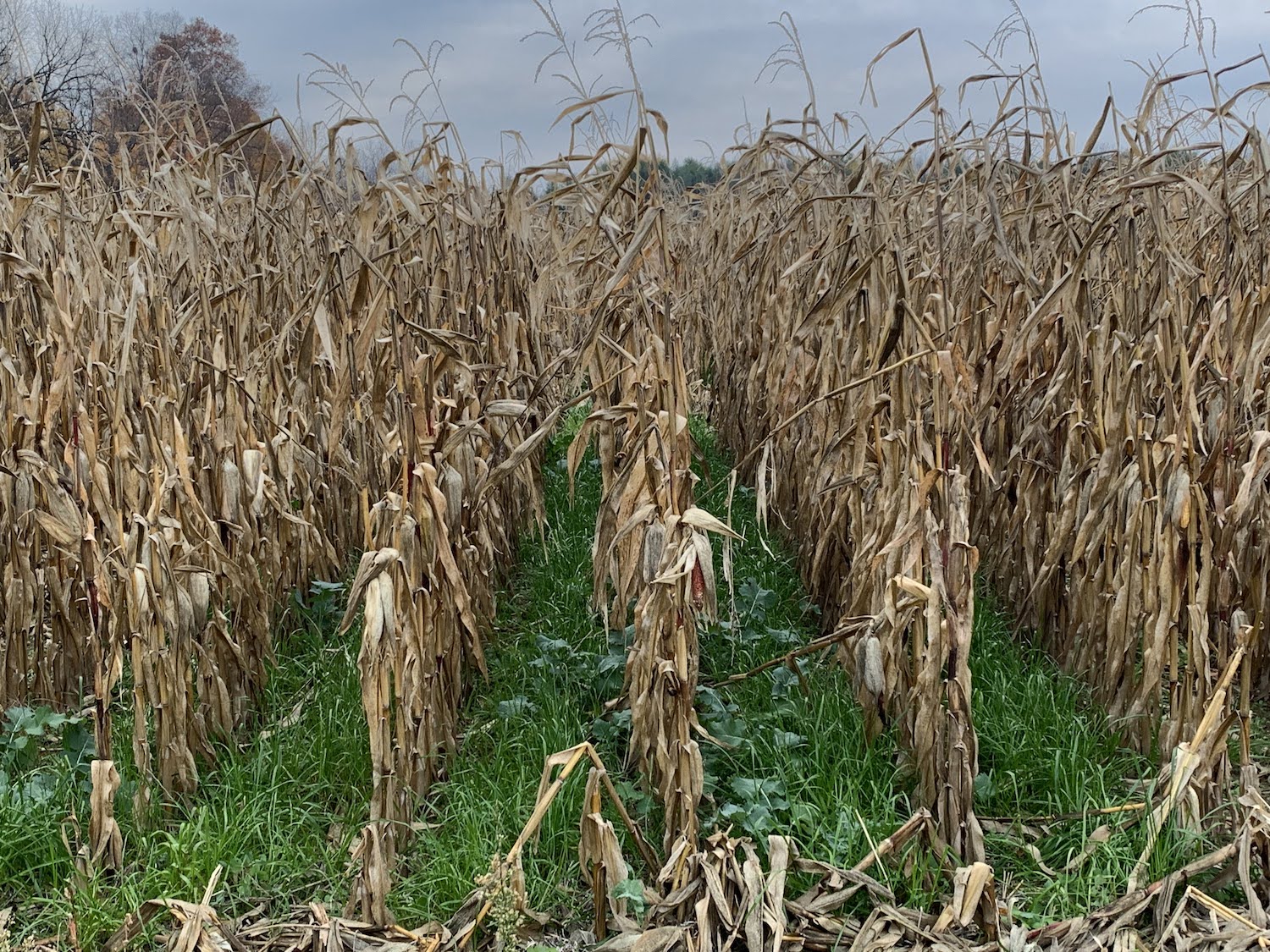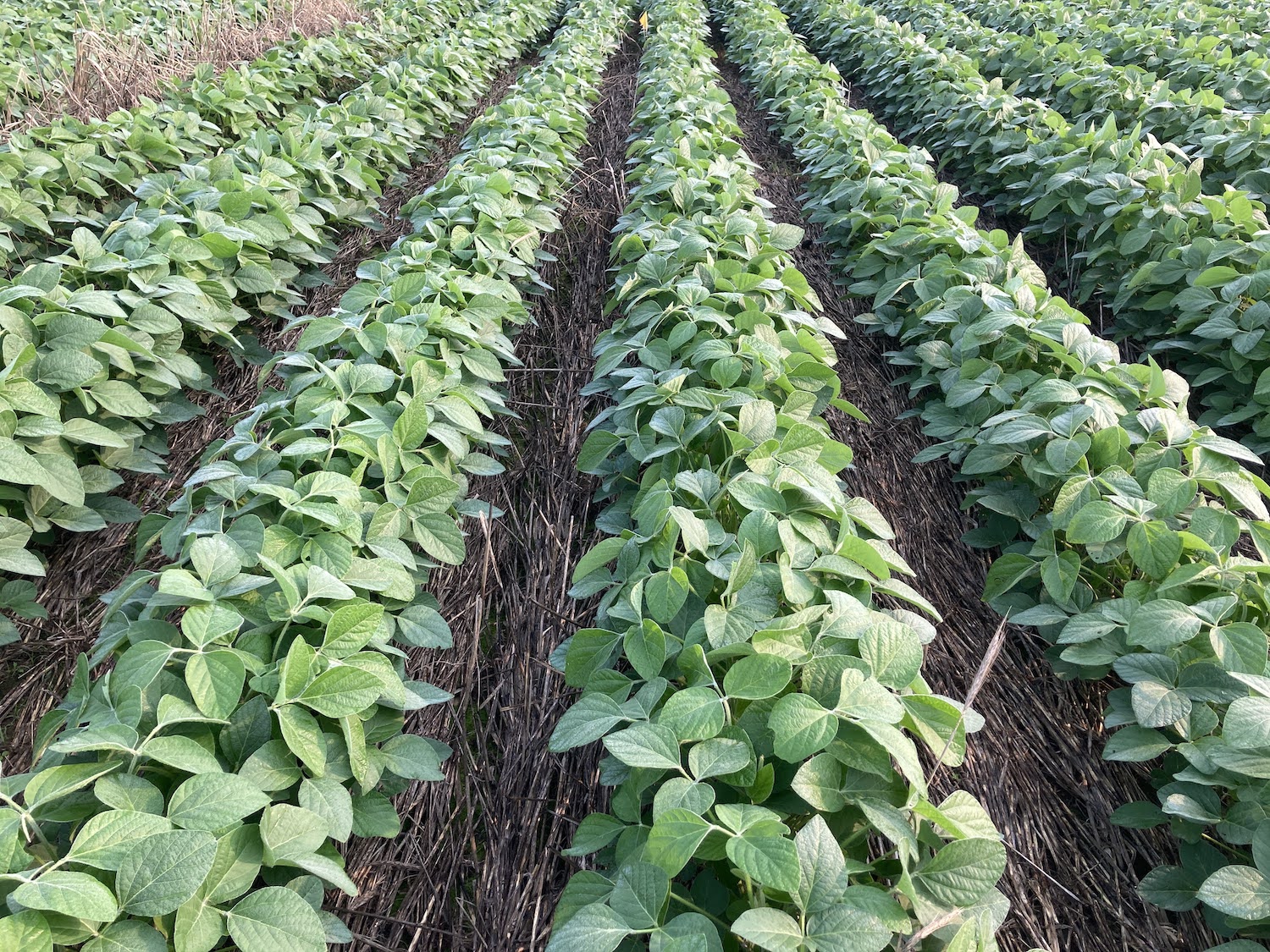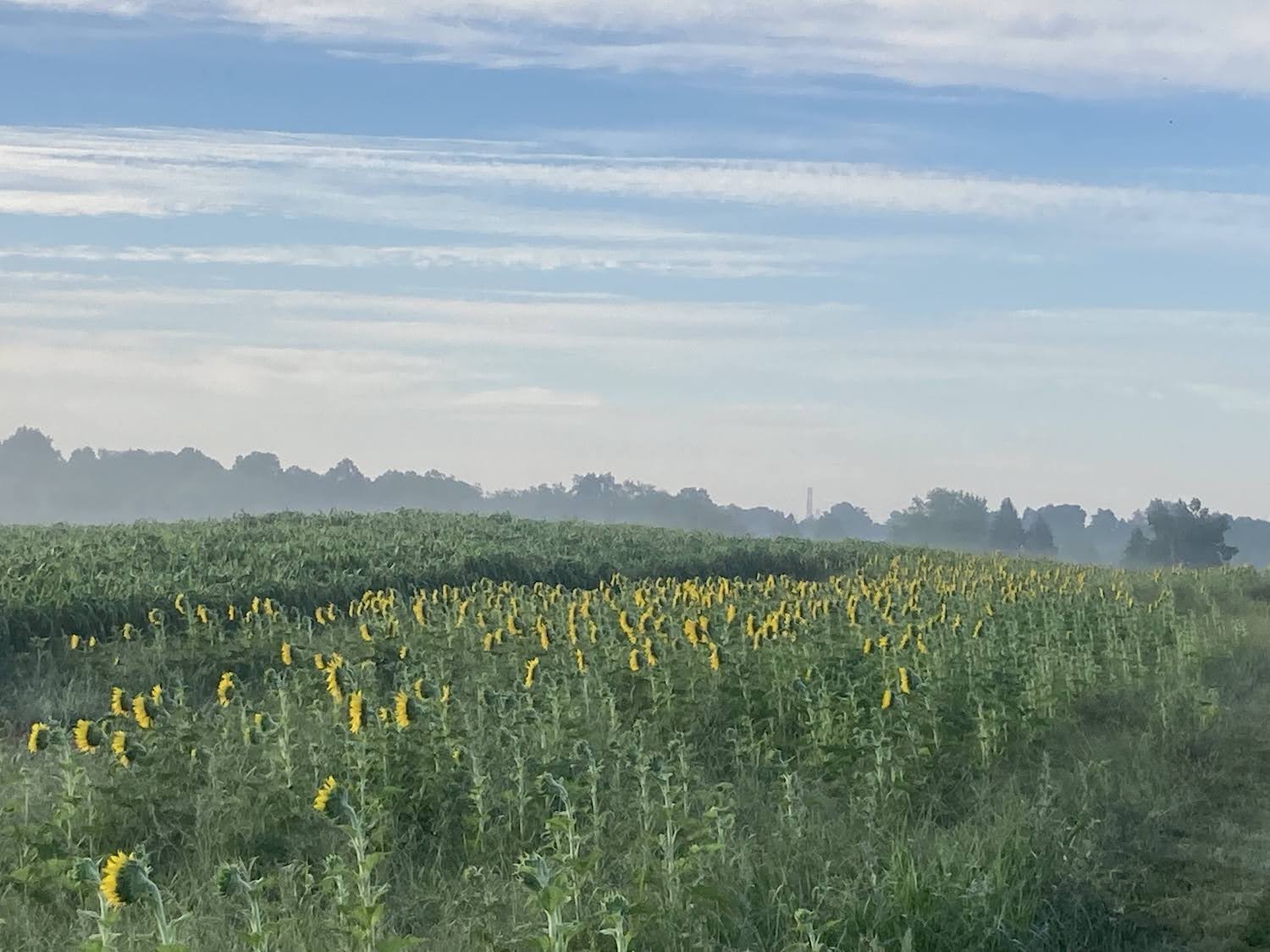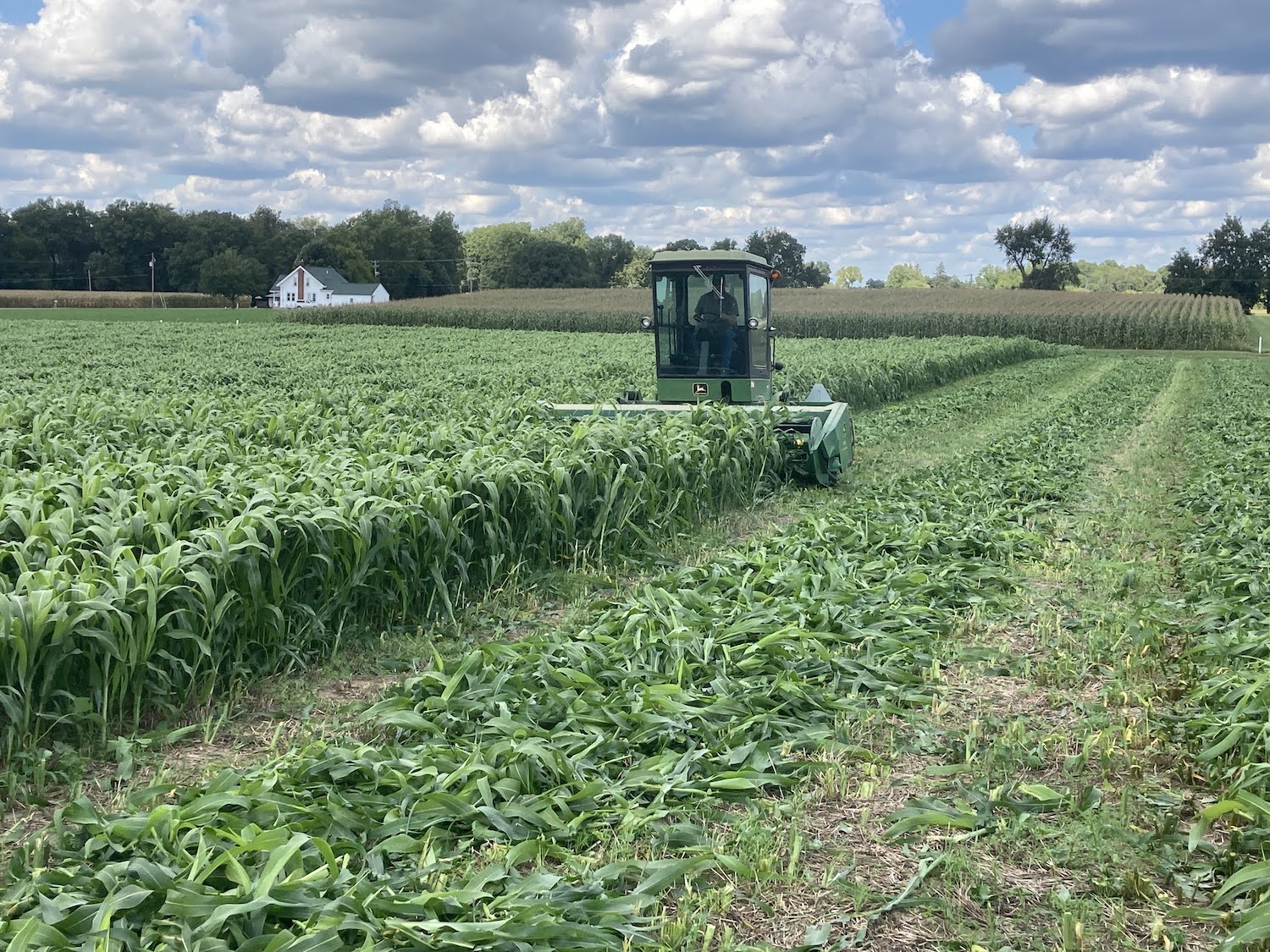KBS
Kellogg Biological StationKBS Background
The Kellogg Biological Station (KBS) is located in southwest Michigan in the eastern portion of the U.S. cornbelt, 50 km east of Lake Michigan in the SW corner of the state. KBS is 1600 ha of cropping systems, successional communities, and small lakes. Surrounding KBS is a diverse, rural-to-semirural landscape typical of the U.S. Great Lakes and upper Midwest regions. The diversity of land use, soil and vegetation types, and aquatic habitats within a 50-km radius of the Station is high. Soils in the area developed on glacial till, and include well- and poorly-drained alfisols, mollisols, and entisols. Most regional soils are sandy loam and silty clay loam of moderate fertility; principal KBS soils are Typic Hapludalfs developed under forest vegetation.
Land use around KBS ranges from urban to rural; vegetation ranges from cultivated and early successional old fields to older growth oak-hickory and beech-maple forests; and aquatic habitats include more than 200 bodies of water of different morphometries, alkalinities, and degrees of eutrophication. Cropping systems in the area are typical of the U.S. cornbelt and Great Lakes region— mainly corn – soybean rotations with wheat of varying importance, and alfalfa an important forage crop. KBS yields are typical of non-irrigated yields elsewhere in the North Central Region.
Climate
Download KBS Climate Syntheses PDF
Proposed KBS LTAR experimental sites
The LTAR project land-base will cover ~121 ha (~300 acres); 15 ha (37 acres) are reserved for the small plot portion of the Common Experiment plus ancillary experiments and 106 ha (263 acres) for the field-scale portion (14 fields each at least 5 ha in size). Fields in the proposed project were managed uniformly during a transition period from 2017-2021, designed to normalize soils for future treatment assignments. Fields were in a soybean, corn, soybean, wheat, corn rotation utilizing business as usual management practices. Corn grown in 2021 was utilized as a pre-treatment crop to measure baseline soil and productivity metrics.
Business as Usual (BAU) and Aspirational (ASP) treatments are being implemented in 2022; management details for these systems include:
Business as Usual (BAU)
- Corn-soybean rotation
- Conventional tillage
- Conventional levels of fertilizers and pesticides (commercial crop advisor)
- Transgenic varieties of corn and soybean
- No cover crops, manure or irrigation
- Field level management of pests, diseases, crop varieties and seeding rates.
Aspirational (ASP)
- High diversity (5 phase rotation)
- High efficiency and circularity (nutrient cycles)
- Animal integration (grazing, forages, & manure)
- Forever green (cover crops, perennials)
- Precision conservation (e.g. native prairies) on consistently low-yielding areas
- Continuous no-till
- Precision technologies
- Adaptive management
Proposed KBS LTAR research/management priorities
- Greenhouse gas mitigation (N2O, CH4 and soil C)
- Biodiversity conservation (pollinators, habitat)
- Production (food, fiber, biofuel)
- Soil health
- Clean water (nitrogen, pesticides)
- Profitability, farmer well-being
LTAR Linkages
Much of the work conducted by the KBS LTAR will be tightly coupled to the entire LTAR network. All KBS LTAR research results and methods will be shared with the network to explore additional collaborations and a wider distribution of the research. The experiment comparing the most common regional practices (BAU and ASP) will be carried out at all of the LTAR locations studying row crops. Comparisons will be made across all of the LTAR locations especially with respect to the ecosystem services identified above. These assessments will be used to make cross location comparisons for the U.S.
USDA Climate Hub
Site Name
Kellogg Biological Station
Website
Location
Southwest Michigan
Established
1920s
Area (km2)
16
Leader(s)
Phil Robertson, Nick Haddad, Steve Hamilton, and Brook Wilke
ABOUT LTAR
The USDA Agricultural Research Service (ARS) Long-Term Agroecosystem Research network consists of 18 Federal and university agricultural research sites with an average of over 50 years of history. The goal of this research network is to ensure sustained crop and livestock production and ecosystem services from agroecosystems, and to forecast and verify the effects of environmental trends, public policies, and emerging technologies.
